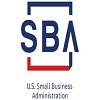Marketing OTC Drugs Legally
11/15/2019
Category: FDA OTC drugs consulting
Over-the-Counter (OTC) drug products are heavily regulated by the U.S. FDA and must be marketed legally and appropriately. Pharmaceutical companies enlist the help of experts who provide FDA OTC drug consulting services. The FDA allows for two regulatory pathways to legally market OTC drug products; the New Drug Application (NDA)/ Abbreviated New Drug Application (ANDA) and the OTC drug monograph.
New Drug Application (NDA)/ Abbreviated New Drug Application (ANDA)
Drug developers must adhere to the NDA regulations which can be found in 21 CFR Part 314. The NDA is for a new drug, whereas an ANDA is for a generic drug. NDAs and ANDAs are approved based on a specific product. If an OTC drug product is new to the OTC marketplace in terms of dosage forms, active ingredient(s), dosage strength or route of administration, then it is regulated under the NDA/ANDA process. Regulatory professionals providing FDA OTC drug consulting services can help with many aspects of the NDA/ANDA process and give guidance on the different types of NDAs available, such as the Rx-to-OTC Switch NDA. Unlike an OTC drug monograph, the FDA must approve an OTC NDA before the drug can be marketed. The drug developer must prove to the FDA that the drug is safe and effective and that the drug can be used by the consumer without the help of a health professional. The drug label plays an important role in the approval process of the OTC drug. Once all data is submitted to the FDA, the FDA will review the application and give their decision. If the approval is made, the drug developer may not stray from the approved label or formulation. The only way to change such information is to submit an NDA supplement which requires FDA approval.
OTC Drug Monograph
The OTC drug monograph is regulated by the FDA and those regulations are described in 21 CFR Part 330. The OTC drug monograph identifies the active ingredient(s) that are contained within the OTC drug product. The FDA has identified active ingredients that are “generally recognized as safe and effective” (GRASE) so that drug developers do not need to obtain FDA approval prior to marketing if their OTC drug products utilize an FDA recognized active ingredient. It is prudent to contract with a firm that provides FDA OTC drugs consulting services to verify the OTC drug product will be a good candidate for the monograph pathway. OTC drug consultants can give feedback with compliance for formulation, labeling, and testing.
Regardless of the pathway selected to market OTC drug products, the drug developer must ensure the standards for safety and effectiveness are met. Both pathways require the drug developer to produce the drug by complying with Current Good Manufacturing Practices (cGMPs) as defined in 21 CFR Part 210. In addition, both pathways require compliance with labeling and format requirements as described in 21 CFR Part 201 Subpart C. The two pathways allow legal marketing of OTC drugs and ensure high standards of drug development and manufacturing.
Author Information
Christina Sanchez Miller, MPH has over 20 years of management, biologics, quality assurance and research experience in the medical field. She is a published author in scientific books, papers and has presented at several international conferences. Christina has developed medical applications in the biologics field. Her experience includes operations and consulting in FDA Adverse Event Reporting, FDA Product Deviation Reporting, FDA 483s, cGTPs, infection control, certified ISO Class 5, 7, 8 development and maintenance, QIC and auditing.
BRG is a global scientific & regulatory consulting firm with extensive experience in the strategic development of drug products, biologics, medical devices, combination products and in FDA regulatory affairs. BRG is regulatory firm providing FDA OTC drugs consulting services focusing on ANDAs, INDs, and NDAs. The opinions and statements in this blog are those of the authors and do not necessarily reflect those of BRG. This blog is based on personal experience and reviews of information publicly available or identified in other database searches.
tagging: fda otc drugs consulting services > OTC drug consultants


